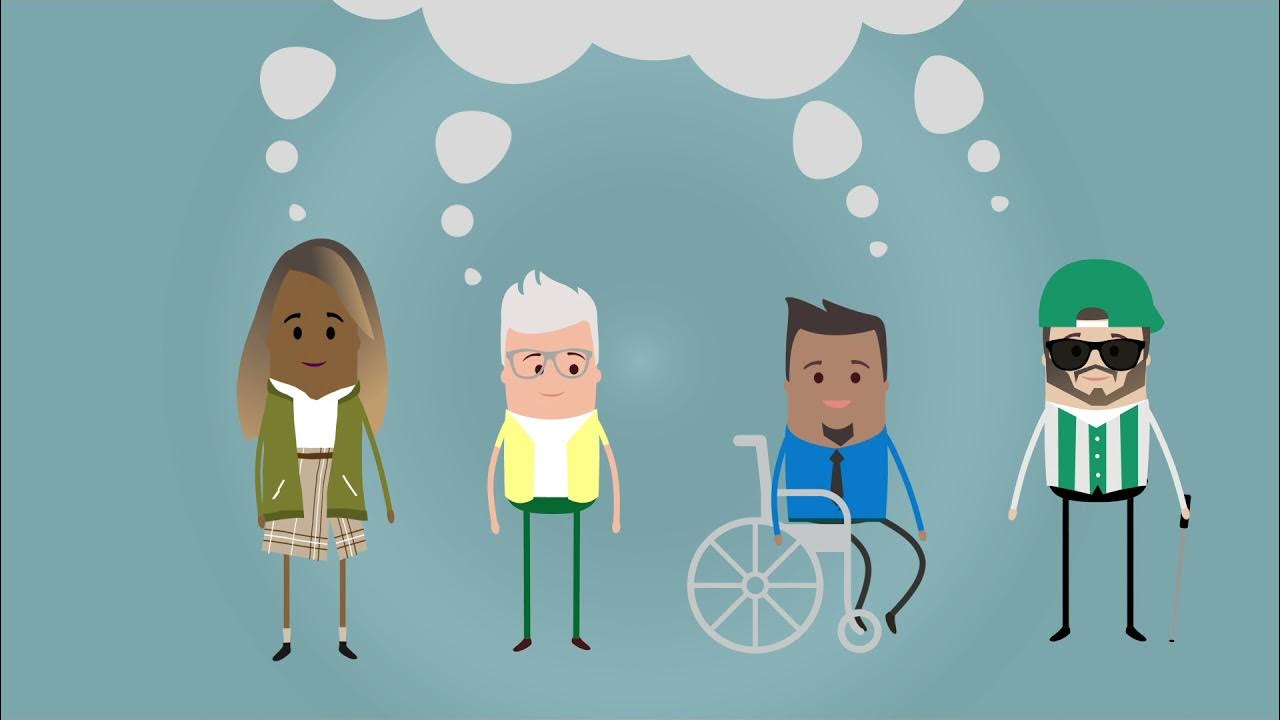A Medical Mythbuster’s Mission to Improve Health Care | Joel Bervell | TED
Summary
TLDRIn this compelling video, Joel Bervell, a fourth-year medical student and social media advocate, discusses the urgent need for diversity, equity, and inclusion (DEI) in medicine. He reflects on his experiences as one of the few Black students in medical school, highlighting the prevalence of racial biases in healthcare practices and education. Bervell emphasizes the power of social media as a platform for raising awareness about health disparities affecting communities of color. He calls for critical discussions on the implications of race in medical practices, advocating for systemic changes to ensure equitable healthcare for all.
Takeaways
- 🌍 Communities of color have historically found solutions to adversity.
- 📱 Social media serves as a powerful platform for education and advocacy, particularly on health equity.
- 👨⚕️ Joel Bervell is a medical student who raises awareness about racial biases in healthcare through social media.
- ⚖️ There is a lack of diverse medical education, often neglecting the social and historical context of health disparities.
- 📉 Racial biases in medicine lead to systemic inequalities in patient care and treatment outcomes.
- 🔬 Historical medical injustices, such as non-consensual surgeries, contribute to mistrust in healthcare among communities of color.
- 💡 Diversity, equity, and inclusion (DEI) are essential for critiquing and improving healthcare systems.
- 🚫 Anti-DEI policies could reverse progress in diversity within medicine and limit access to important research.
- 📊 Increased awareness and education can empower patients and providers to address healthcare disparities.
- 🤝 Social media is a valuable tool for building community and advocating for changes in the healthcare system.
Q & A
What does Joel Bervell identify as a significant platform for social change?
-Joel Bervell identifies social media as a significant platform for creating positive change and raising awareness about crucial issues often overlooked in traditional media.
How does Joel describe his experience as one of the few Black medical students?
-Joel describes his experience as isolating, especially during a time of significant racial events in the U.S. He noted the lack of representation and diverse medical education in his curriculum.
What health disparities does Joel mention in relation to Black individuals?
-He mentions that Black individuals are more likely to have asthma, COVID, and diabetes, but emphasizes that these statistics are often presented without discussing the underlying social and political factors.
What historical examples does Joel use to illustrate racism in medicine?
-Joel cites the case of Fannie Lou Hamer, who underwent a hysterectomy without consent, and the practices of Dr. Sims, who conducted surgeries on enslaved Black women without anesthesia, to highlight the historical mistreatment in medicine.
What percentage of medical students endorsed false biological beliefs about racial differences?
-A study from 2016 showed that 50% of medical students or residents endorsed at least one false biological belief regarding differences between Black and non-Black patients.
Why is diversity, equity, and inclusion (DEI) important in medicine, according to Joel?
-DEI is crucial because it allows for a critical evaluation of healthcare systems and ensures that medical practices do not harm diverse patient populations.
What potential impacts do anti-DEI bills have on the medical field?
-Joel warns that anti-DEI bills could lead to decreased diversity in medicine, reduced access to research addressing racial issues, and a decline in scholarship programs, ultimately harming patient care.
How does Joel suggest communities can empower themselves within the healthcare system?
-Joel encourages communities to be informed and aware of their rights and the information available to them, which can help them feel more confident when interacting with healthcare providers.
What role does social media play in advocacy according to Joel?
-Social media serves as a platform for community building, advocacy, and education, helping to raise awareness about issues like racial bias and the need for change in medicine.
What message does Joel want to convey about the healthcare system?
-Joel wants to convey that while there are serious issues within the healthcare system, individuals have the power to seek information and advocate for themselves to improve their experiences.
Outlines

هذا القسم متوفر فقط للمشتركين. يرجى الترقية للوصول إلى هذه الميزة.
قم بالترقية الآنMindmap

هذا القسم متوفر فقط للمشتركين. يرجى الترقية للوصول إلى هذه الميزة.
قم بالترقية الآنKeywords

هذا القسم متوفر فقط للمشتركين. يرجى الترقية للوصول إلى هذه الميزة.
قم بالترقية الآنHighlights

هذا القسم متوفر فقط للمشتركين. يرجى الترقية للوصول إلى هذه الميزة.
قم بالترقية الآنTranscripts

هذا القسم متوفر فقط للمشتركين. يرجى الترقية للوصول إلى هذه الميزة.
قم بالترقية الآنتصفح المزيد من مقاطع الفيديو ذات الصلة

DEI - Overview of Diversity, Equity, and Inclusion

What DEI Gets Wrong — and How to Do It Right | Paolo Gaudiano | TED

What I Want To Know Ep. 26: What is the state of diversity, equity, and inclusion in our schools?

Diversity, Equity & Inclusion | & so much more podcast

DEI experts are finally getting fired..

Por que Black Myth Wukong não vai concorrer ao GOTY 2024.
5.0 / 5 (0 votes)
